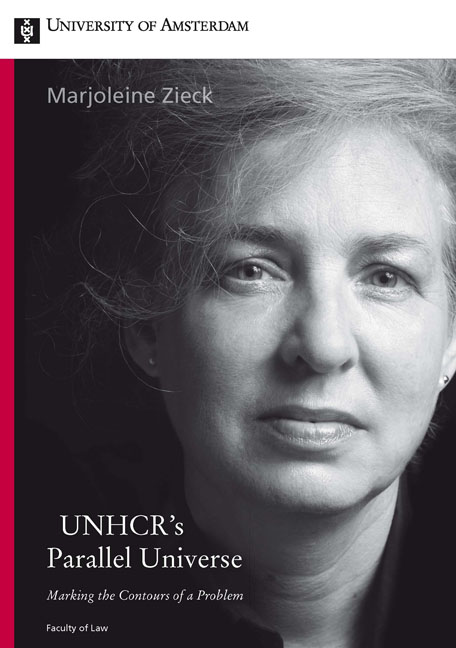UNHCR’s Parallel Universe: Marking the Contours of a Problem
Published online by Cambridge University Press: 20 January 2021
Summary
Facts that Make one Wonder
On 18 January 2005, the United Nations High Commissioner for Refugees (hereafter referred to as UNHCR) expressed its deep concern over Japan's deportation of two Turkish Kurds recognized as refugees under UNHCR's Statute.
On 9 August 2006, UNHCR indicated that it was shocked by the forcible return of four Uzbek refugees by Kyrgyzstan. The four had been recognized by UNHCR under its mandate. UNHCR had also secured resettlement places for them.
On 21 September 2007, UNHCR raised its serious concerns with the government of Turkey regarding the expulsion of 5 Iranian refugees to northern Iraq. The refugees were recognised in Turkey by UNHCR under its mandate.
On 25 April 2008, UNHCR reported that the Turkish authorities attempted to forcibly deport 60 people of various nationalities to Iraq through the official border crossing. When the Iraqi border authorities allowed 42 Iraqis to enter the country but refused to admit 18 Iranian and Syrian nationals, the Turkish police took the latter, which included five Iranian refugees recognised by UNHCR, to a place where a river separates the two countries, and forced them to swim across. According to the witnesses interviewed by UNHCR, four persons, including a refugee from Iran, were swept away by the strong river current and drowned. Their bodies could not be recovered.
Commencing on 28 December 2009, Thailand forcibly returned over 4,500 Hmong asylum seekers to Laos despite concerns voiced by the UN that some could face persecution at home. The group included 159people recognized by UNHCR, which condemned the forced return.
Human misery writ large, and the incidents where states fail refugees can easily be multiplied with categorically different instances: the arrest and mistreatment of Uzbek refugees in Kazakhstan, refugees who have no access to the national asylum system; forced return of refugees without a full examination of their claims to asylum (Eritrean refugees from Egypt, Zimbabwean refugees from South Africa, Sri Lankan refugees from Ukraine, Somali refugees from Kenya, boat refugees from Italy, Angolan refugees from Congo, Rwandan refugees from Burundi); lack of security for tens of thousands of Sudanese refugees from Darfur (Sudan) in Chad; the Thai army operating a dump-at-sea policy with respect to Rohingya refugees;
- Type
- Chapter
- Information
- UNHCR’s Parallel UniverseMarking the Contours of a Problem, pp. 5 - 20Publisher: Amsterdam University PressPrint publication year: 2010



